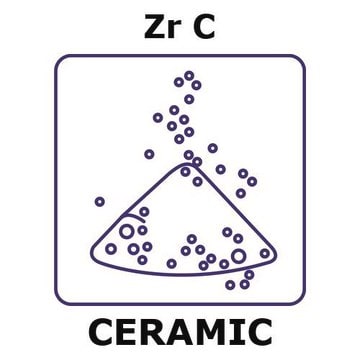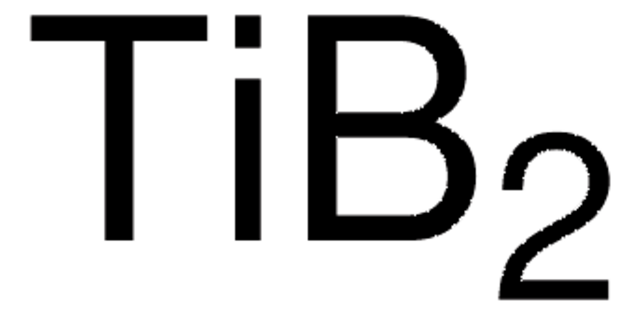GF54382888
Boron
monofilament, 10m, diameter 0.1mm
Synonym(s):
Boron, B 005910
Sign Into View Organizational & Contract Pricing
All Photos(2)
About This Item
Empirical Formula (Hill Notation):
B
CAS Number:
Molecular Weight:
10.81
MDL number:
UNSPSC Code:
12141907
PubChem Substance ID:
NACRES:
NA.23
Recommended Products
form
foil
manufacturer/tradename
Goodfellow 543-828-88
resistivity
1.5E12 μΩ-cm, 20 °C
L × diam.
10 m × 0.1 mm
density
2.34 g/mL at 25 °C (lit.)
SMILES string
[B]
InChI
1S/B
InChI key
ZOXJGFHDIHLPTG-UHFFFAOYSA-N
Looking for similar products? Visit Product Comparison Guide
General description
For updated SDS information please visit www.goodfellow.com.
Legal Information
Product of Goodfellow
Signal Word
Warning
Hazard Statements
Precautionary Statements
Hazard Classifications
Acute Tox. 4 Oral
Storage Class Code
13 - Non Combustible Solids
WGK
nwg
Flash Point(F)
Not applicable
Flash Point(C)
Not applicable
Choose from one of the most recent versions:
Certificates of Analysis (COA)
Lot/Batch Number
Sorry, we don't have COAs for this product available online at this time.
If you need assistance, please contact Customer Support.
Already Own This Product?
Find documentation for the products that you have recently purchased in the Document Library.
Anne-Marie Alexander et al.
Chemical Society reviews, 39(11), 4388-4401 (2010-06-08)
Catalysts generated by the addition of carbon, nitrogen or phosphorus to transition metals have interesting properties and potential applications. The addition of carbon, nitrogen or phosphorus can lead to substantial modification of the catalytic efficacy of the parent metal and
Boron containing compounds as protease inhibitors.
Reem Smoum et al.
Chemical reviews, 112(7), 4156-4220 (2012-04-24)
Ting Jiang et al.
Organic letters, 16(7), 1952-1955 (2014-03-29)
A novel stepwise and regioselective nucleophilic aromatic substitution (SNAr) reaction of halogenated boron dipyrrins (BODIPYs) with pyrroles has been developed under mild conditions with no catalyst needed and shown to be diversity oriented. The resultant pyrrole-substituted BODIPYs are interesting red
Kyoko Miwa et al.
Advances in experimental medicine and biology, 679, 83-96 (2010-07-30)
Understanding of the molecular mechanisms of boron (B) transport has been greatly advanced in the last decade. BOR1, the first B transporter in living systems, was identified by forward genetics using Arabidopsis mutants. Genes similar to BOR1 have been reported
Li Song et al.
Advanced materials (Deerfield Beach, Fla.), 24(36), 4878-4895 (2012-07-14)
Two-dimensional (2D) atomic layers derived from bulk layered materials are very interesting from both scientific and application viewpoints, as evidenced from the story of graphene. Atomic layers of several such materials such as hexagonal boron nitride (h-BN) and dichalcogenides are
Our team of scientists has experience in all areas of research including Life Science, Material Science, Chemical Synthesis, Chromatography, Analytical and many others.
Contact Technical Service




